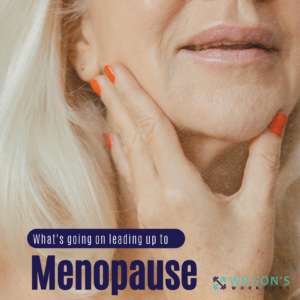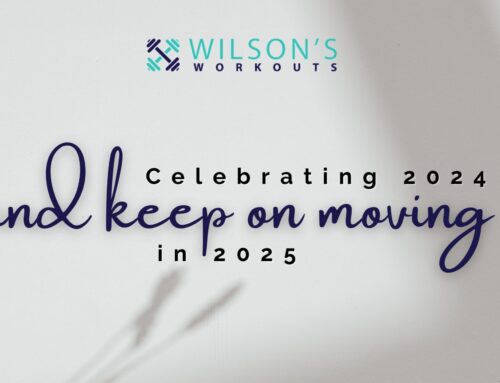Are you a woman in your 40’s or starting your 50’s and you are noticing changes in how your body works despite doing the same sport? Are you eating the same as you did in your 30’s but now you experience some strange symptoms that you are not used to? These can be symptoms of peri-menopause.
During this period not all of us will experience the same symptoms. Some will suffer a lot while others will barely notice. I think it is important to be aware of that so we can support each other and not dismiss others’ experiences.
This newsletter is my attempt to simplify what is happening to us during this phase because when you know this, you may be able to recognise and act on how you are feeling.
If you don’t already know what is going on during a menstrual cycle, you can catch up on this article here. As you can see, during the menstrual cycle, oestrogen and progesterone level rises and falls depending on where you are in the cycle.
The moment of menopause is when you have not had a menstrual cycle for 12 months. Women can experience perimenopause up to 10 years before this date, and this is when the hormones start changing.
The main sex hormones we produce are oestrogen and progesterone. However, we also produce testosterone. All of these decline in different ways during your perimenopause.
Oestrogen is not only part of your reproductive system. It is also used in every cell for all kinds of functions in your body, such as memory, muscle building and immune function.
During perimenopause, this hormone declines, but not in a straight line. It fluctuates, going above what it would normally be and also crashing down. Ultimately though, it is reducing considerably.
During the moments that it is high, it can result in symptoms like heavy periods, breast pain and irritability. Contrasting to this, low oestrogen levels can lead to hot flashes and heart palpitations.
Lower oestrogen production also has an impact on muscle building. There is a higher amount of protein breakdown, which means that during this time, it is more important to do resistance training and eat more protein.
Progesterone goes down more gradually. Progesterone has a calming effect on us, but as we age, the ovarian follicles are inactive, reducing the amount of progesterone produced. As time goes by, we start losing this effect which can result in symptoms such as anxiety, depression and insomnia.
Once we go through menopause, our mood generally goes back to how it was when we were younger.
Because of the lowering of progesterone, sleep can have a big hit because we have less of that nice sedative effect. Oestrogen also has an impact here as it helps us with our REM sleep and regulates cortisol, so having less of it creates that waking-through-the-night we experience and makes us wake from cortisol spikes due to stress. Poor sleep quality then impacts our performance and recovery and, as I have experienced, really impacts the quality of life.
Perimenopause and menopause can be daunting, but it is good to know that some lifestyle changes, together with medical help when needed, can improve overall health and make symptoms easier to manage.
Are you experiencing perimenopause symptoms? Message me to let me know how you are managing them. I would love to know!
Information is the key here, and I have written a lot on this subject. Have a look through the following articles, I hope it helps you or a loved one understand the changes in our body:
- The surprise of starting my perimenopause
- Perimenopause – Body composition changes
- Perimenopause and insomnia
- Perimenopause and incontinence
- Perimenopause and hot flashes
- Stress in your forties
- Training during perimenopause
- Support during perimenopause
If you would like to work with me, send an email to set up a free 30 minute consultation.
Author: Lorna Wilson
Like what you see? Then send me a message or e-mail. We can meet up for a chat and find out how I can help you improve your training and help reduce injury risk.
06 460 377 74 / lorna@wilsonsworkouts.nl





